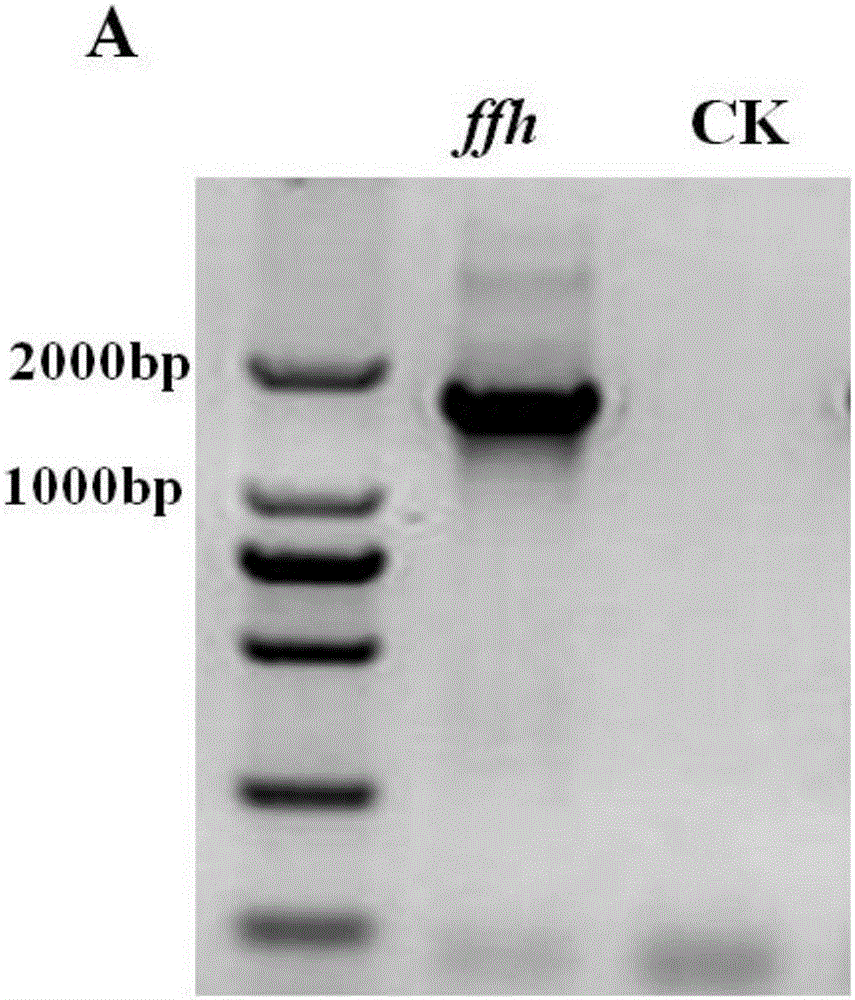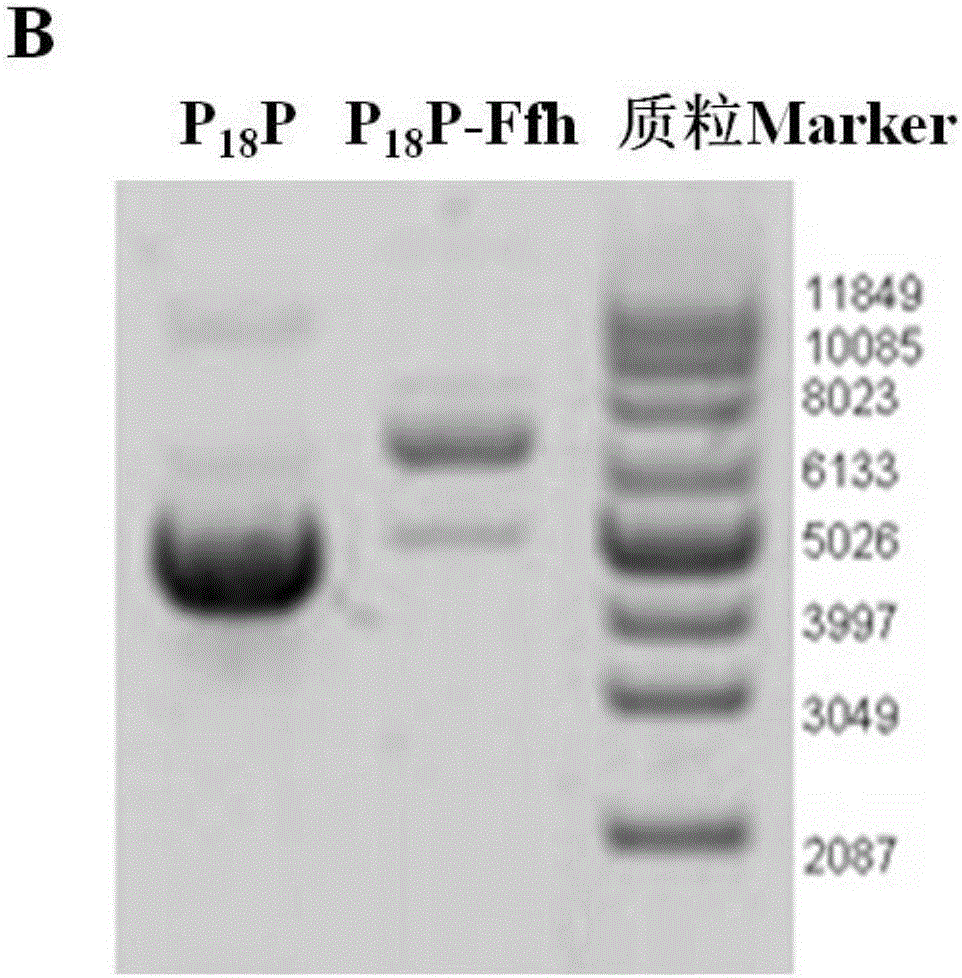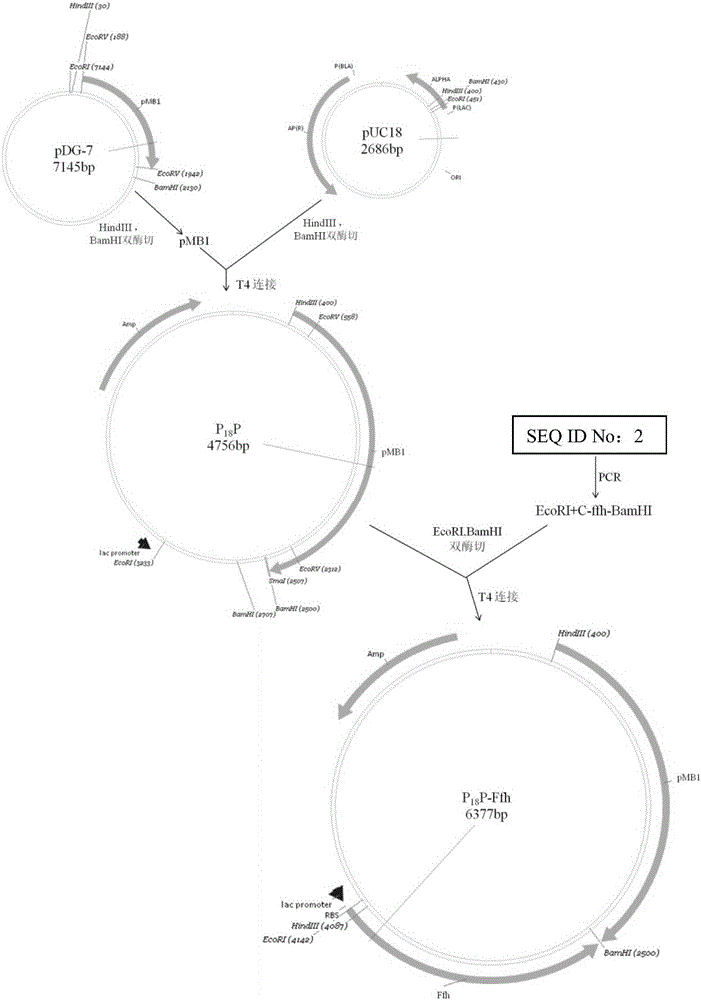Application of signal recognition particle subunit and encoding gene thereof to preparation of acid-resistant bifidobacterium, plasmid containing gene and bifidobacterium
A technology of signal recognition and bifidobacteria, applied in the field of genetic engineering, can solve problems such as poor taste, unstable genetic characteristics of bifidobacteria, and cumbersome operations
- Summary
- Abstract
- Description
- Claims
- Application Information
AI Technical Summary
Problems solved by technology
Method used
Image
Examples
Embodiment 1
[0048] 1. Recombinant expression plasmid P 18 Construction of P-Ffh
[0049] (1) Construction of expression plasmid P 18 P
[0050] The pDG-7 plasmid and the pUC18 plasmid were double-digested with BamHI and HindIII respectively, and the pMB1 of the pDG-7 digestion product was recovered, and the pUC18 digestion product was recovered, and ligated in the T4 DNA ligase reaction system at 4°C for 10-12 hours. Transform the plasmid into DH5α Escherichia coli competent cells by heat shock, plate on LB solid medium containing 100 μg / mL ampicillin and culture for 16 hours, pick a single colony in LB liquid medium containing 100 μg / mL ampicillin After enrichment and extraction, a 4758bp plasmid P was obtained 18 P( Figure 1B ).
[0051] (2) Preparation of gene encoding signal recognition particle subunit
[0052] Use the upstream primer (PrimerF:CG as shown in SEQIDNo: 4 GAATTC CTTGACAGACAGACTCTCGAATGCGT, the underline is the EcoRI restriction site) and the downstream primer s...
Embodiment 2
[0079] Each step was carried out according to the method of Example 1, except that the bifidobacterium used was Bifidobacterium juvenile CGMCC No.6270.
[0080] The results show that the conversion has P 18 The survival rates of this strain of P-Ffh at pH 1, 2 and 3.5 were 2%, 5% and 8%, respectively, and the survival rates of normal strains at pH 1, 2 and 3.5 were 0.1%, 0.7% and 1.5%, respectively.
Embodiment 3
[0082] Carry out each step according to the method of embodiment 1, difference is, the plasmid used is not P 18 P, but the pMG36e plasmid.
[0083] The results showed that the expression level of the plasmid in CGMCCNo.2265 was extremely low, and could only be vaguely seen in agarose electrophoresis, and the survival rates of CGMCCNo.2265 transformed with the plasmid were 3%, 3%, and 3.5% respectively in pH1, 2, and 3.5. 5% and 7%.
PUM
 Login to View More
Login to View More Abstract
Description
Claims
Application Information
 Login to View More
Login to View More - R&D
- Intellectual Property
- Life Sciences
- Materials
- Tech Scout
- Unparalleled Data Quality
- Higher Quality Content
- 60% Fewer Hallucinations
Browse by: Latest US Patents, China's latest patents, Technical Efficacy Thesaurus, Application Domain, Technology Topic, Popular Technical Reports.
© 2025 PatSnap. All rights reserved.Legal|Privacy policy|Modern Slavery Act Transparency Statement|Sitemap|About US| Contact US: help@patsnap.com



